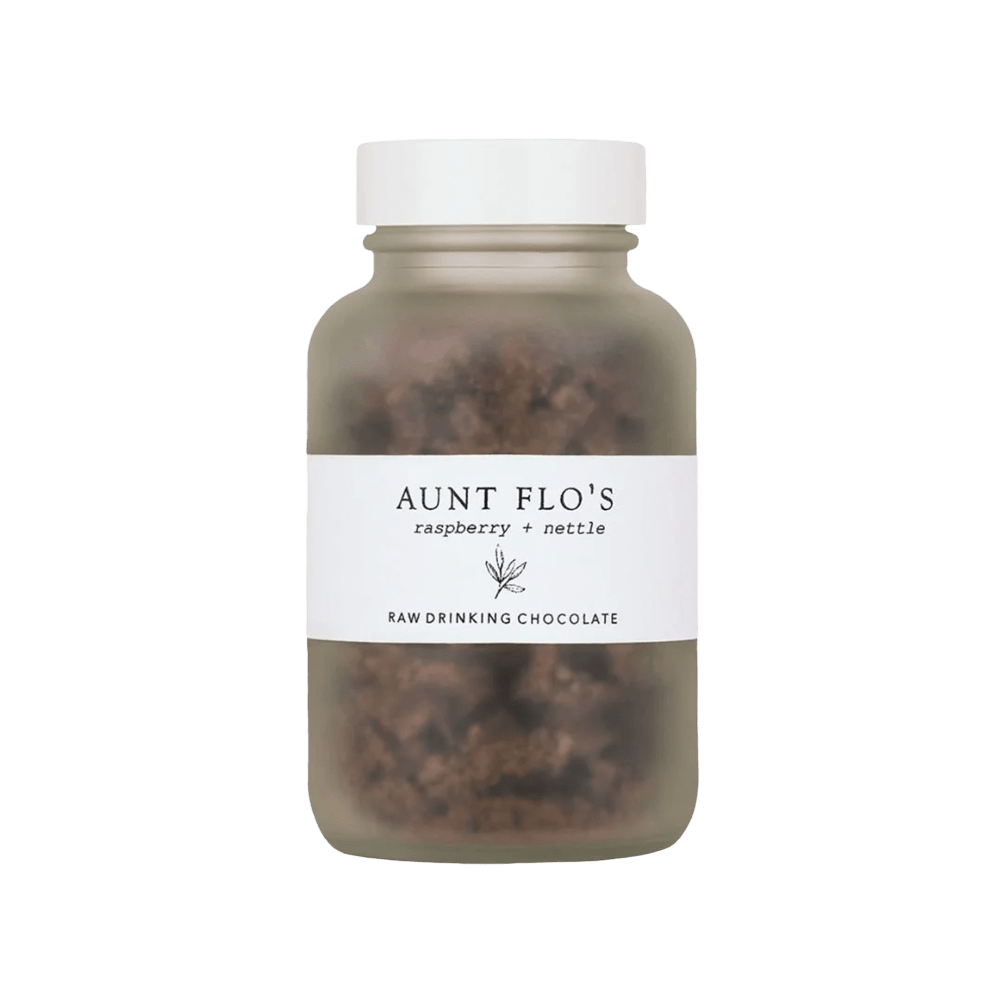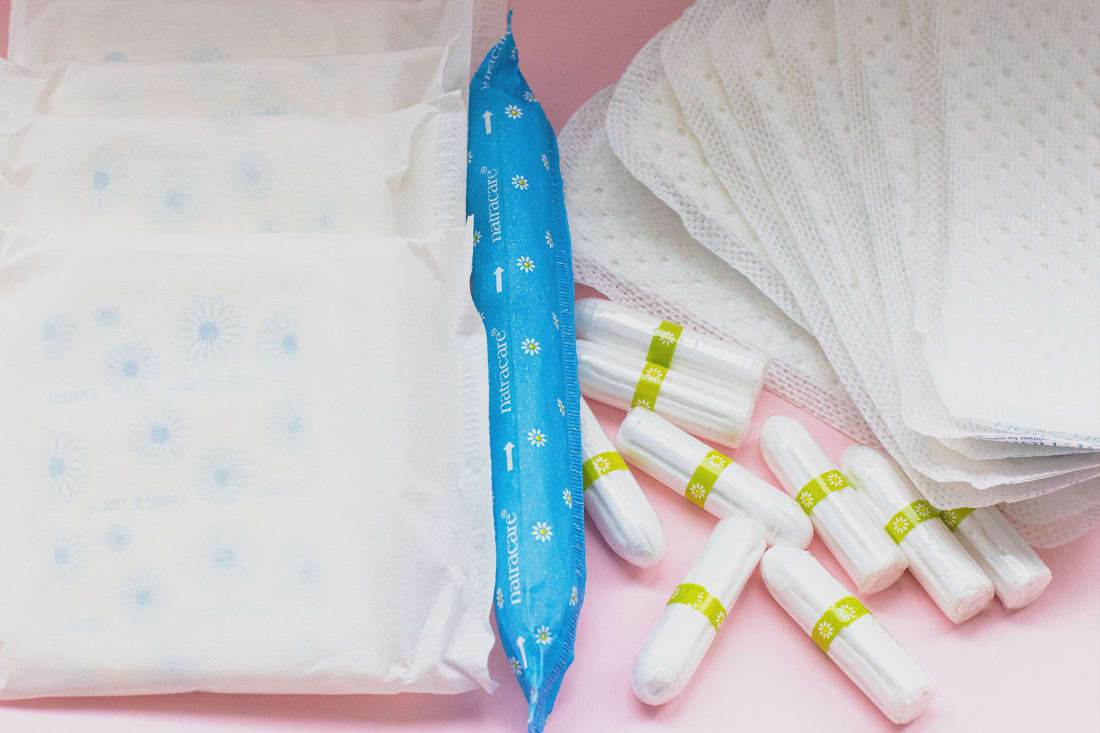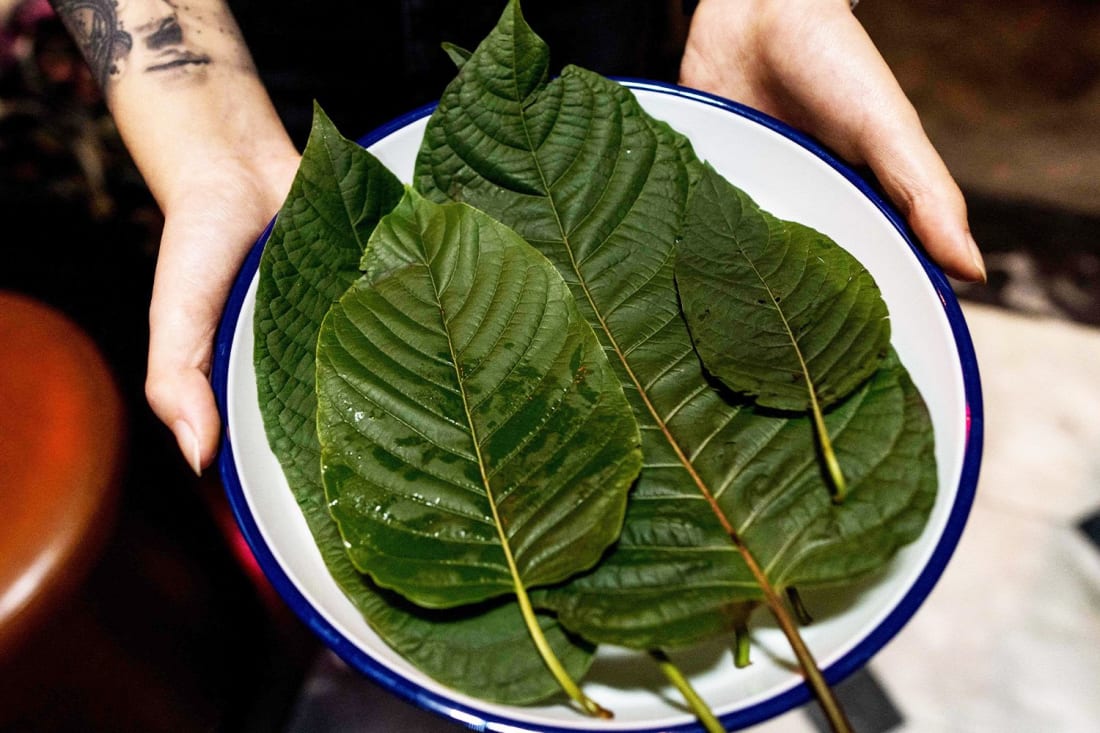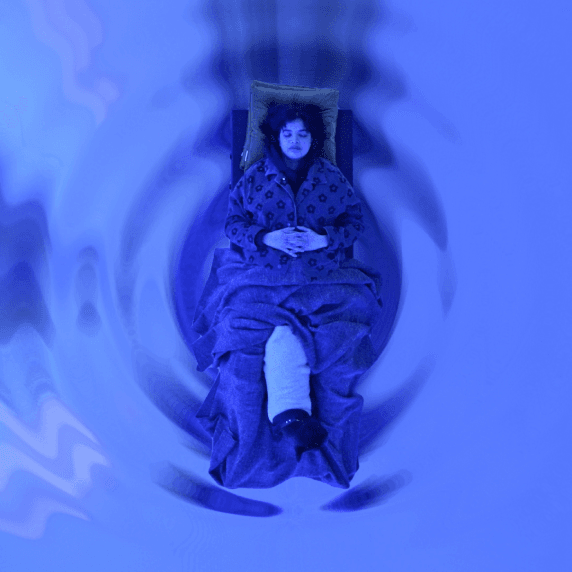How foraging for herbs can help your hormone health
Tips and tricks for using nature to heal yourself from master forager and herbalist Natasha Richardson
Tips and tricks for using nature to heal yourself from master forager and herbalist Natasha Richardson
Like many people who menstruate, I suffer from intensely painful periods that make my insides feel like they’re being constricted by barbed wire. Endometriosis runs in my family, and I have all the symptoms – but unfortunately, the only way to know if you have the disease for sure is to have a laparoscopy (keyhole surgery), which doesn’t exactly sound like a walk in the park. Two vaginal ultrasounds and 14 years worth of appointments, contraceptive pills and prescribed painkillers later, and I’m still waiting for help managing my pain. On average, it takes people 6-10 years to get a diagnosis.
I reached out to Natasha Richardson: a medical herbalist, master forager, and founder of Forage Botanicals who has used her knowledge of nature to help others with menstrual issues, as well as a host of other issues that come from poor hormone health. Her must-read menstrual health guide, Your Period Handbook, is essential reading for anyone else struggling with their menstruation, taking readers on a deep dive into hormones, contraception, stress, and dealing with doctors appointments, alongside a thorough guide to herbalism. It’s immediately apparent that Natasha is preaching what she knows, having suffered from crippling periods herself.
If your period lasts around a week, that’s a whopping quarter of your fertile life spent bleeding. While getting checked out at the doctors is most definitely an important step to take if your life is being severely affected by menstruation, there is power in taking matters into your own hands and finding alternative treatments too. Plus, foraging does wonders for your mental health, helping you feel in tune with nature as well as your body. Although, ensure you always make your doctor aware of any herbal remedies you take, especially in conjunction with other medicines.
Below, I catch up with Natasha about how to take the plunge into the world of foraging to find healing herbs.
What inspired you to write your book?
Natasha Richardson: I wrote it for anybody who was struggling with period problems that had been told there's nothing the doctor’s can do, or told that there doesn't seem to be anything actually wrong with them. It covers lots of common period problems, and explains all the different reasons why they might be happening.
I talk a lot about how to understand your cycle and on an emotional level as well as a physical level. Stress is one of the leading factors for problems, so it’s important to live a life more in sync with it. I tried to choose the most readily available herbs that anyone can find and reap the rewards from.
In what way has being trained in herbalism helped you when foraging?
Natasha Richardson: We’re taught to use our senses, and to identify what a plant does before being taught about it. So we use our feelings and our instincts a lot when it comes to figuring out what a herb does and how we're going to use it, as well as how those herbs talk to each other in a remedy. I can always tell with a herbal product if it's been made by a herbalist or not. A lot of the time there’s no synergy in the blend. Usually a herbalist will use their sense of taste just like when you're baking a cake – this is too sweet. This is too sour. Herbs need to talk to each other, and often live near each other physically.
How would you suggest people get started in foraging, and what is the safest way possible?
Natasha Richardson: Eventbrite is a great place to find foraging events. Going out on a herb walk is the safest way to get into foraging. It allows you to go out and start picking things that you’re already familiar with – there's lots of plants that we learned as kids, but that we underutilised, like dandelions and nettles, for instance. Anyone can go and pick those.
What are some tips for people going foraging for the first time by themselves?
Natasha Richardson: Make sure that you've got the ID of a plant correct is key – and pick above your waist where you can, because then you can avoid pee all together, which is obviously a plus! If that's impossible, then you can try to be very aware of where you're picking so that it's not somewhere that dogs frequent. If you’re still not sure, then make sure to wash what you’ve gathered when you get home. A lot of the ways that we prepare herbs sterilises them anyway; we either boil them or put them in alcohol etc, so that helps.
Another safety factor is to be aware of where you're picking if in a wild setting. I'm used to foraging in suburbia, so I'm picking down the edge of a railway track, or some ignored bits of land in the park. You'd have to be aware that some of those bits of land might be being treated with weed killer. Usually this is pretty obvious because the plants look really unwell, but it's worth bearing in mind.
Which herbs help acne and improve skin health?
Natasha Richardson: People sometimes find they get monthly breakouts, and it's largely on the chin, or the jaw line. This is often because your livers are getting overburdened. Dandelion would be the go-to herb that most people already know. And you'd work with the root to skin stuff. But their dot also grows wild. But it's just less well known. It's specifically good for the skin, which is why we use it.
What would you recommend for balancing emotions and reducing stress?
Natasha Richardson: You'd be looking at things like chamomile, and you might be lucky enough to find some lemon balm that's jumped out from somebody's garden into somewhere wild. Passionflower is great too, which loads of people grow in their gardens – you can use the leaves and flowers in tea.
There's also loads of research to say that being out in nature is helpful to mental health, with forest healings and forest bathing becoming increasingly popular. Basically, the idea is that spending time in forests amongst plants is an incredibly effective mindful practice.
What's best to forage for menstrual health to manage pain and other symptoms?
Natasha Richardson: Peppermint is a fantastic antispasmodic. It has actually been proven in trials to be more effective than paracetamol for period pain. Raspberry leaf is a great pain reliever too.
Do you have any advice for how to combat sleeping troubles?
Natasha Richardson: There's two versions of sleep problems: usually you either can't get to sleep, or you can't stay asleep. If you can't get to sleep, it's often because of short term stress with issues with relaxing, which you can treat with chamomile and lemon balm. If you can't stay asleep, it’s often to do with long term stress – so your adrenals are hyperactive. In this case, you want to use adaptogens, which you won't be able to forage for generally speaking in there like ashwagandha liquorice root, if you grow them your own much actually uses some of them.
For people living in urban environments who feel disconnected from green spaces, how would you suggest getting started in foraging?
Natasha Richardson: I used to go to lots of parks and down the edges where no one attends. If you have a park, then you've most likely got a whole bunch of herbs at your fingertips. There's certain places that are protected that you can't go to, but usually there's no problem. I've asked gardeners in the past if I can come and pick their burdock root – these have a long taproot, and park gardeners are always delighted for me to dig it up. I also like the idea of knocking on my neighbour‘s doors and being like, hey, can I pick out your dandelion? I can make you herbal medicine in payment! it's a nice way to connect with people.
Do you have a favourite recipe?
Natasha Richardson: Some of my favourite recipes have ended up turning into products – that's just the way things go. One of my favourite things is Aunt Flo’s drinking chocolate. It’s packed with raspberry leaf, raw chocolate and nettle leaf – it gives you so much energy. I usually make mine with oat milk, and then I put some brown sugar in it too. It's yummy!
FOR THE CHOCAHOLICS

Aunt Flo’s Drinking Chocolate
This nourishing raw drinking chocolate is packed with iron fortified prebiotic Cacao, superfood nettle and healing raspberry leaf. Drink a few days before your period is due until day 3-5 of your cycle for a medicinal chocolate fix.
ESSENTIAL READING

Your Period Handbook - Natasha Richardson
A must-read for anyone who wants to reclaim their cycle and balance their hormones. Forage Botanical founder Natasha Richardson's uses her own personal experience with crippling period pains to create this guide to better understand and heal your body with the power of herbs.
LITTLE DROPS OF HEAVEN

Premenstrual Peace Drops
These calming drops are key to relaxation during PMS stress. Hawthorn, liquorice root and passion flower are blended together to help balance your mood. Either place them straight on the tongue or in mix them with a little water everyday for a month for best results.



















